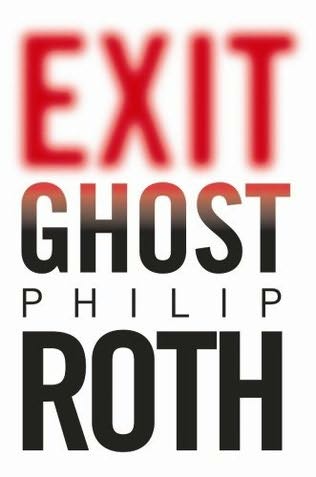
Collegial Fiction
by Jeff Goldberg
Indignation
by Philip Roth
There are perils to writing a college novel, the first and foremost being that college novels usually suck. There are very few good ones. This Side of Paradise by Fitzgerald is, arguably, one of them. Donna Tartt's The Secret History is another, which I recommend everyone to read, especially if one is considering the study of ancient Greek.

There are some notable college novel failures, such as Tom Wolfe's recent and much-derided I am Scarlett Johanssen, which I almost read until I discovered it was called something else. And there are a few possibly decent ones of which I am ignorant. The Bell Jar, for example. Or that book Prep, which I think might be about college, but I couldn't get past the pink cover staring at me from every Barnes & Noble window display in the city.
My real problem with college fiction is I have spent too much time in writing workshops sitting next to writers who had just finished their undergraduate study and therefore wrote exclusively about being undergraduates. There is nothing worse than reading self-important stories about college life written by people who, like their characters, imagine that what goes on in college is of some importance.

The four or so years spent immersed in undergraduate study are intentionally and successfully divorced from the rest of existence. It's where we scuttle away to learn, but also to bleed out disconnected emotion: anger, passion, intoxication, fear, excitement, hysterics, joy, and a huge overvaluing of our societal worth.
I'm not saying that some or even all college students aren't worth an incredible amount to society, perhaps worth even more to society than they imagine they are worth, but the fact remains that thinking you are worth something to society before having proved you are worth something to society is insufferable. I used to think that way too, and I have not yet retroactively justified it, but that's college for you.
College movies are a totally different story and, for the most part, awesome. I think unjustified self-importance and Hollywood mix well.

Philip Roth's Indignation is, mostly, a college novel, and as far as college novels go, it's one of the good ones. But, of course, Roth could write a poop novel and it would be one of the good poop novels. In fact, he could write a bad novel and it would be one of the good bad novels.
In the first few pages of the novel, the narrator, Marcus, reminisces about working in his father's kosher butcher shop the summer before his freshman year, and the simple listing of butchorial duties nearly brought tears to my eyes with its clarity and earnestness.
We'd buy a whole quarter of the beef, and we'd buy a forequarter of the lamb for lamb chops, and we'd buy a calf, and we'd buy some beef livers, and we'd buy some chickens and some chicken livers, and since we had a couple of customers for them, we would buy brains."

The Museum of HAM! Not quite a kosher butcher.
Roth has a way of extending images and conversations beyond where other writers dare to go. In a normal book, if a character has to make a eulogy (for example), the text might provide the first lines of the speech, slip into indirect description, throw in an ellipsis, and then skip to the next scene. Roth says, "Screw that," and presents the reader with five pages of the complete eulogy, in all of its brilliant, uncomfortable, mournful glory.
This new book is not the Roth of American Pastoral, I Married a Communist, or The Human Stain, three weighty American masterpieces that force the reader to work as he or she reads, that allow one to reach the end only after a joint struggle. Each of those books on its own would serve as the culmination of any other author's life's work.

This picture captures neither beauty nor the soulful mourning of Philip Roth's eyes.
Indignation is looser and lighter, closer to the Roth of yore, of The Ghost Writer and Goodbye, Columbus, all with their reserved young Jewish boys from Newark just starting to stretch beyond their upbringings. The indignation of the title is the indignation Marcus Messner feels about everything: his father, his roommates, his dean, his mandatory chapel requirement, his future, even his one blow job.
Despite the number of sources, the depth of his indignation is sourceless, especially welling up within one whose childhood taught him nothing but principle and dignified servility. The novel is narrated with tragic hindsight, but even the knowledge of how Marcus Messner's young life turns out does not explain the indignation, since his indignation is exactly what causes his life to turn out the way it does.
The thing about college novels is that they focus on characters whose self-important emotion is completely out of scale with that emotion's cause. An objective observer finds it difficult to make the jump as well, knowing that what seems immense during college will have little or no impact on the world as a whole.
Roth never quite manages to bring the reader along to the peaks of indignation, but unlike so many other weaker works, he never intends to. The reader sits fidgeting uncomfortably every time Marcus fails to contain himself and lets fly with his rants or lectures. It's like watching a fight between strangers on the subway while trying to remain invisible as two supposedly normal people you can't believe are shouting continue shouting. It's embarrassing and fascinating and a bit terrifying that people can have so little self-control and so little self-awareness as to behave this way. It's also secretly titillating to imagine ridding oneself of similar restraints.
Since I recently finished reading - in a row - all nine of Philip Roth's career-spanning Zuckerman novels, it is impossible for me not to compare the short-lived, unaccomplished Marcus Messner to Nathan Zuckerman, whose lifespan was longer and more successful than most, in both a fictional and in a very real way. Marcus is Zuckerman's stunted half-brother, from similar though bluer-collar roots, with the same initial promise but a trajectory that veered off course.

Can we map Messner's indignation to a metafictional origin? Unlike Zuckerman, it is hard if not impossible to see Marcus as Roth's doppelganger, except as, like in The Plot Against America, a history that never was. Marcus's indignation, then, is not Roth's indignation, but a more general one. It is the indignation that not all lives turn out well, or long, or meaningful, or beautiful, or sensible, and the fact that they do not can be attributed to no good reason at all.
Jeff Goldberg is the senior contributor to This Recording. His most recent short story appears in Volume 2 of the Australian literary journal Torpedo.
PREVIOUSLY ON THIS RECORDING
It should totally win for best haircut.
Those with near supernatural powers.
Molly on How I Met Your Mother.


